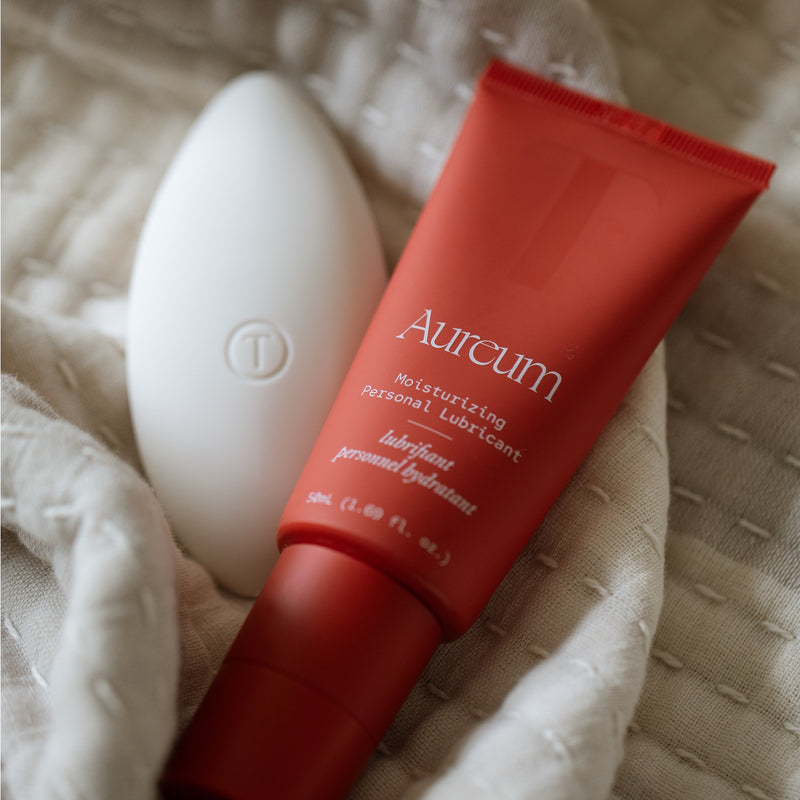Who are Pelvic Floor Physical Therapists?
Every part of our body requires special care and attention to make sure that we’re living our healthiest, fullest life possible.
Many women see a gynecologist for expert treatment for sexual health concerns. And we should - gynecological specialists can treat and diagnose issues your general practitioner might not be trained to look out for.
But there’s one more step we can take if we’re experiencing symptoms that go beyond what even our gynecologists can help us with.
Consulting with a pelvic floor physical therapist.
What in the world is that, you might be thinking?
The Pelvic Floor and Sexual Wellness
The pelvic floor is the group of muscles that create the base of our abdominal core and line the pelvic ring.
Why does it matter?
Our pelvic floor is a crucial part of breathing, and of core muscle strength and stability. And ever wondered how our organs stay in place? The pelvic floor holds up our bladder, colon, cervix, vagina, and more. It controls a lot of the functions related to urinary continence and sexual function.
Pain during sexual activity can cause the muscles of the vagina, and often the muscles of the pelvic floor, to contract in an effort to keep the pain away. In its most extreme form, this can cause a condition called vaginismus, in which the muscles are contracted so much, they won’t allow for anything to actually enter the vagina. Our brain associates this pain with sex and creates a vicious cycle that’s difficult to break without proper treatment.
Urinary incontinence, or the inability to control when you pee, is a huge issue that is rarely talked about, and can be difficult to treat without the consultation of a pelvic floor physical therapist. It might not seem directly related to sexual wellness, but trust us, it is. Many women attribute this issue as a primary reason why they avoid sexual activity with their partner.
Pee when you laugh? Incontinence. Pee during sex? Incontinence. Pee whenever just because you have to and it comes out whether you like it or not?
That’s incontinence, and while it does tend to activate in the years surrounding menopause, it can strike during other life stages as well, like postpartum.
The Experts Who Bring It All Together
The decision to help patients suffering with pelvic floor dysfunction is a commitment to helping people reclaim their lives. It’s not for the faint of heart - the practice is inherently intimate, and requires a deep knowledge base that goes beyond standard physical therapy doctorate schooling. It requires extra training that you can’t get in grad school. Programs for pelvic floor physical therapy specifically train practitioners to erase the muscle memories of painful sex and pain in general, eliminate pelvic floor muscle tension, strengthen atrophied muscles, and restore healthy function.
Even though the impact of pelvic health is far reaching, the pelvic floor specialty within physical therapy is only 30 years old. As a result, a lot of patients, doctors, and even OBGYNs aren’t aware of pelvic floor physical therapy. Many pelvic floor issues are completely dismissed as being psychological! A pelvic floor physical therapist will work with you, one on one, and help you discover the roots of your symptoms and teach you methods for healing and rebuilding.
Pelvic floor physical therapists take a hands-on approach to your pelvic floor health from the very first appointment. They do a deep dive into your holistic health, looking at your posture, your spinal movement, your breathing, hip mobility. Exams of the external genitalia and of the internal vagina to check muscle tone, pain, and scar tissue (it’s important to note, they only perform internal exams if you’re comfortable with it). They learn everything they possibly can about your body so they can continue with an effective care plan. Pelvic floor PTs don’t just provide a therapeutic experience within the time of the appointment - many of the exercises that you’ll learn can be done in the privacy and comfort of your own home.
Looking for a pelvic floor physical therapist? Check out Dr. Heidi Gastler’s practice Mountain to Sea Physical Therapy in Manhattan Beach, California. She offers both in-clinic and telehealth visits so whether you’re in the area or out of state, she can help.
https://pelvicrehab.com/pelvic-floor-therapy-what-to-expect/
https://www.mayoclinic.org/diseases-conditions/interstitial-cystitis/symptoms-causes/syc-20354357
https://my.clevelandclinic.org/health/diseases/17878-vulvodynia
https://hermanwallace.com/how-to-become-a-pelvic-floor-therapist








